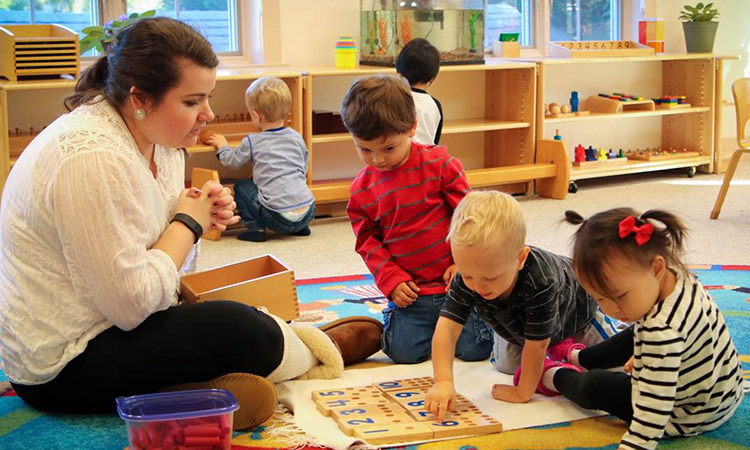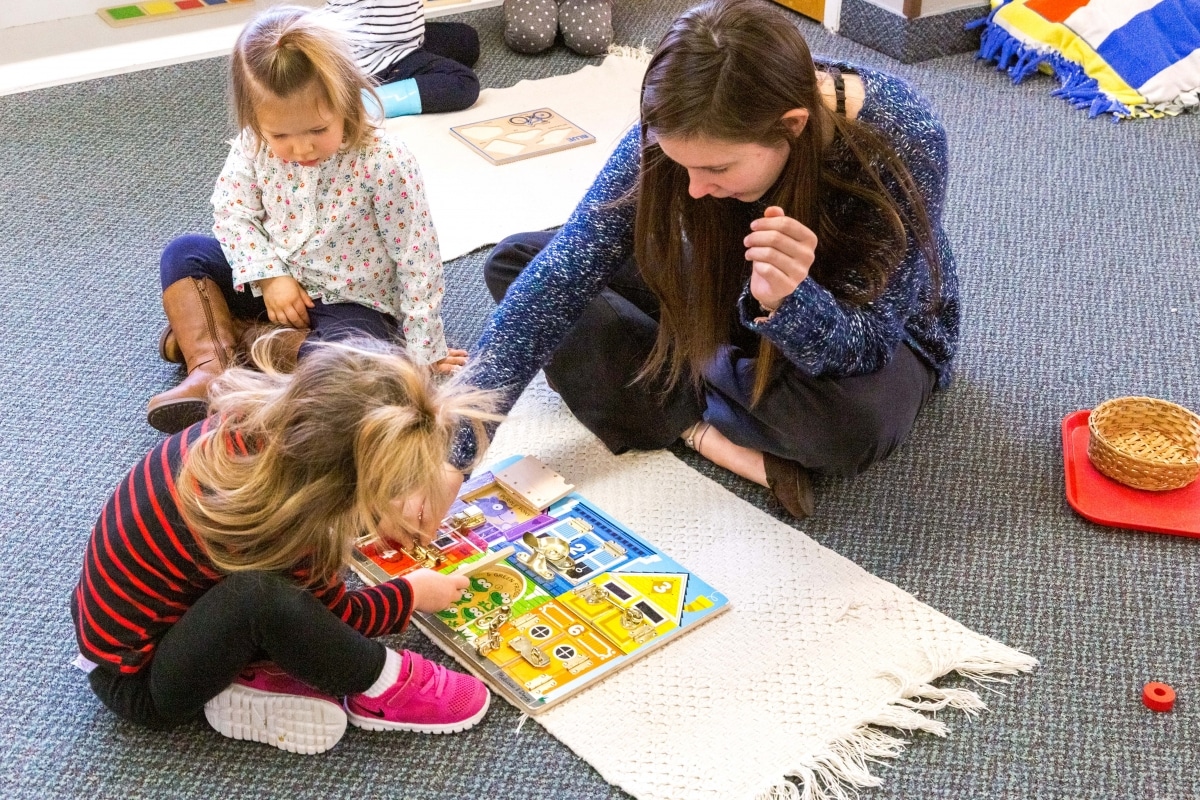Montessori Approach to Religion
Unlocking Montessori’s Secret to Nurturing Children’s Morals: Insights on Religion, Spirituality, and Values
As a parent, there are numerous crucial choices to be made concerning your child’s schooling, and picking a philosophy that resonates with your principles can be a daunting task. I encountered similar apprehensions before opting for Montessori education, particularly with respect to religious beliefs.
Montessori as a teaching approach is generally not associated with any particular religion. Rather than focusing on a specific faith, the philosophy emphasizes the importance of fostering a child’s spiritual growth and promoting values such as compassion and consideration for oneself and others. This means that regardless of your religious beliefs, Montessori provides a solid basis upon which you can instill your own personal values while encouraging your child to become a compassionate and respectful individual.

Is Montessori Religious?
The Montessori curriculum does not involve religious teachings and instead includes teachings on various religions, customs, and cultures. However, it is possible for a Montessori school to be based on a particular religion, such as a Christian Montessori School, while other Montessori schools remain non-religious.
What values does Montessori promote?
The Montessori method of education intends to educate children on various aspects of life that are relevant to all human beings living on Earth. The objective is to cultivate a person who is respectful and peaceful and can contribute positively to society, which is a common goal shared by most religions. Montessori values are compatible with both religious and non-religious people. Maria Montessori emphasized the importance of nurturing the spiritual development of children, which she believed was essential to unlock their potential. She also stressed the need for teachers and parents to prepare themselves spiritually before embarking on their educational journey with young children.

Nurturing a Child’s Spirituality
It is crucial to comprehend the contrast between religion and spirituality. First and foremost, spirituality is something that everyone encounters, regardless of their awareness of it. It is universal. Secondly, spirituality is ancient and serves as the basis for all religions. An intelligent individual once stated that spirituality raises significant queries, whereas religion strives to address them. This is precisely what Montessori aims to instill in young children by means of purposeful daily tasks and contemplating the bigger picture. Montessori education accomplishes this by using what they refer to as Peace Education, Cosmic Education, and by making use of a prepared environment.
The Prepared Environment
The arranged surroundings, known as the prepared environment, are established by the teacher or parent to cater to the child’s necessities, enabling them to perform tasks more self-sufficiently with less supervision. This approach ultimately instills independent thinking in the child allowing them to make decisions regarding their activities and feelings towards mastering them. Moreover, the prepared environment emphasizes the creation of serene spaces through the incorporation of natural elements and aesthetics, such as art and plants. The environment is structured to nourish the human soul.
Peace Education in Montessori
The main concept of the Montessori approach revolves around teaching peace education, which is not explicitly represented by any materials but is integrated into every aspect of the method. The approach starts by nurturing spirituality in young children, which is accomplished by utilizing various techniques.
Practical life activities – purposeful activity
Practical life skills refer to routine activities that children carry out either at home or at school. These activities are designed to engage children in authentic tasks that promote independence and expertise. Generally, the activities are grouped into three main categories.
Care of self
These actions comprise basic activities such as dressing up, brushing teeth, or making a light meal. The main objective of acquiring self-care skills is apparent, but the deeper advantage is to implant inner calmness and mindfulness. When we do not honor ourselves, we are unable to honor others.
Care of the environment
These tasks involve looking after animals and plants and acquiring knowledge of maintaining cleanliness. The primary goal is to cultivate accountability in children, however, they also develop admiration towards the environment, their belongings, and other living creatures. Children become conscious of the contentment with basic chores and the sense of unity with the natural world.
Grace and Courtesy
These instructional sessions emphasize the importance of treating others with kindness and respect, and involve exercises such as acquiring the skill of greeting people, using proper table etiquette, interrupting others in a polite manner, handling a teacup, and moving chairs. Additionally, it is possible to engage in practical life activities from as young as 12 months old.
Cosmic Education in Montessori
This forms the basis of the elementary curriculum for children aged 6 to 12 and is an umbrella term for the following subjects:
- Science
- Art
- Geometry
- History
- Geology
- Mathematics
- Language
In teaching these subjects, the focus is on taking a global perspective or examining the big picture first. The ultimate goal is to instill a sense of appreciation for the universe and one’s place within it. Rather than pushing a particular agenda, lessons are aimed at planting seeds of knowledge. Teachers and parents are encouraged to pay attention to a child’s interests and natural tendencies. The overarching goal of Cosmic education is to emphasize how everything in the universe is interconnected and interdependent. Each element has a cosmic purpose and a role to fulfill. This approach helps children consider their own purpose and place in the world and how to coexist harmoniously with both nature and other humans.
